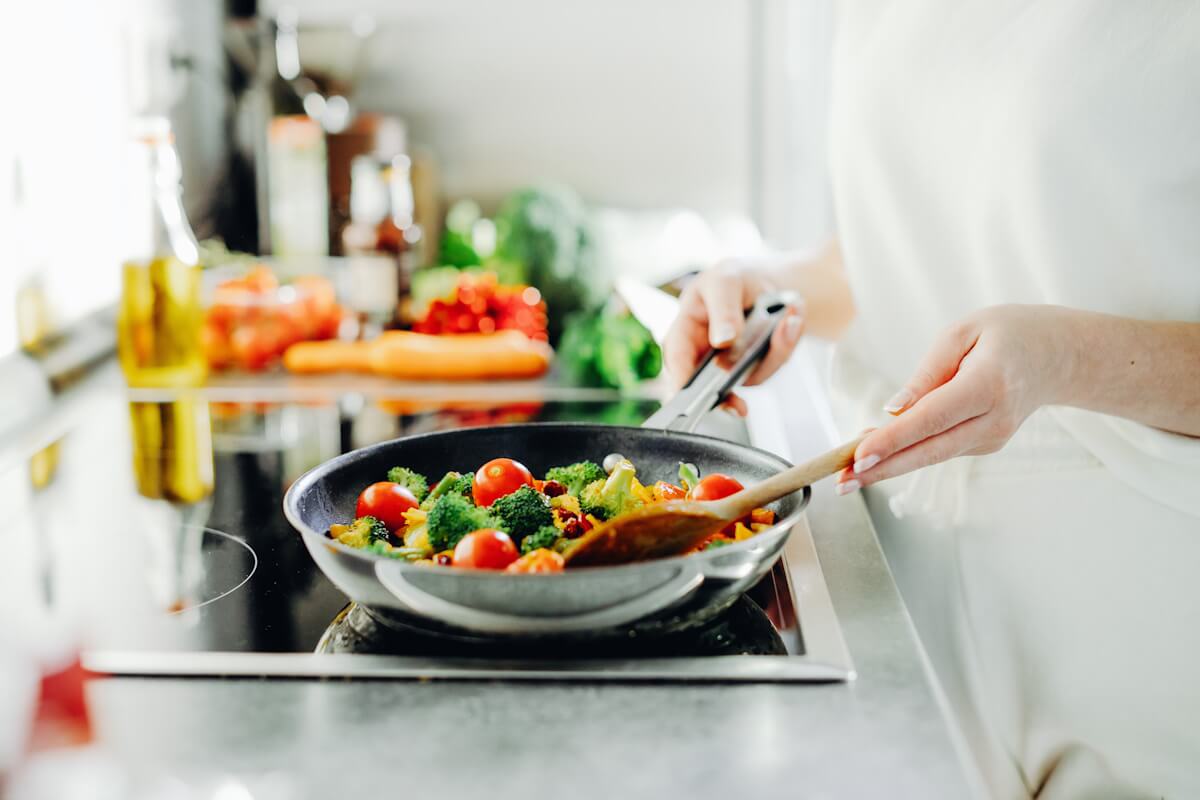So, just imagine waking up without that achy stiffness that makes getting out of bed feel like running a marathon. Or finally ditching that nagging joint pain that seems to stick around no matter how much you stretch. It all sounds too perfect, right? Does it remind you of your early twenties?
Well, what’s the secret to feeling better? It might just be on your plate. No, really, a quick dinner that’s filled with unhealthy foods can actually do far more harm than good. So, why not something that’s anti-inflammatory? Well, anti-inflammatory foods aren’t just another health buzzword, they’re basically, what your body needs (but yeah, they’re often used as a buzzword though). They fight pain, calm inflammation, and even help you sleep better.
What Inflammation Does to Your Body

Inflammation is like your body’s emergency alarm. Sounds weird, right? Well, stub a toe, twist an ankle, or catch a bug? Then inflammation jumps into action to protect and heal you. But here’s the kicker: when that alarm never shuts off, it stops helping and starts hurting. Basically, that jolt turns into pain.
Chronic inflammation can trigger or worsen all kinds of issues, and yes, that includes joint pain, backaches, arthritis, and even the “why-does-my-knee-hurt-for-no-reason” problem.
It’s surprising, right? Sure, everyone knows that certain foods can cause stomach aches, and even an inflamed colon, but never anything else, right? Essentially, the more fried, sugary, or processed the meal, the more your body struggles to calm the fire. Over time, this can even lead to more serious conditions like heart disease, diabetes, or autoimmune disorders. So, what you eat truly matters—far beyond just counting calories.
How Food Can Help You Ditch the Pain

Alright, so not all foods are created equal. Anti-inflammatory foods are the best option since they’re packed with nutrients that help your body fight off chronic inflammation. Think of them as nature’s painkillers, minus the side effects. For example:
- Leafy Greens: Kale, spinach, and Swiss chard are loaded with antioxidants and vitamins that help repair inflammation damage.
- Berries: Blueberries, strawberries, and raspberries are bursting with phytonutrients that reduce oxidative stress.
- Fatty Fish: Salmon, mackerel, and sardines are rich in omega-3 fatty acids, which are known to cool down inflammation.
- Turmeric: The golden spice contains curcumin, a powerful anti-inflammatory compound that’s been used for centuries.
- Nuts and Seeds: Almonds, walnuts, flaxseeds, and chia seeds are packed with healthy fats and fiber.
These foods don’t just fight inflammation—they’re also great for overall health, supporting better energy, focus, and even your mood.
Less Pain Equals Better Sleep
It really can’t be stressed enough, but chronic pain doesn’t just mess with your day, it can ruin your nights, too. You’ve probably dealt with pain ruining sleep, right? Well, your body can’t repair itself properly when it’s stuck in this loop. This is where an anti-inflammatory diet works its magic (well, to a degree at least, especially as you age).
As pain decreases, your body gets the chance to relax and recover. With less pain keeping you up at night, your body can recharge and get back to feeling its best by morning. And when you sleep better, your stress levels drop, which further helps reduce inflammation. It’s a win-win.
If you’re looking for an added boost, products from My Pain Center can help promote better sleep by reducing discomfort. Pairing these with a healthy diet can make a world of difference.
What You Need to Skip
It’s hard to break up with the foods you love, but some are just bad news for inflammation. No matter how much you love sugary snacks, fried foods, and anything processed, well, they’re basically like adding gasoline to the fire. Sure, they might taste good, but they’ll leave you paying for it later.
Here’s a quick list of inflammatory culprits to avoid:
- Refined Sugars: Found in candy, desserts, and sugary drinks, they spike your blood sugar and fuel inflammation.
- Processed Foods: Think chips, frozen meals, and packaged snacks loaded with additives and trans fats.
- Fried Foods: Deep-fried anything introduces harmful compounds called AGEs (advanced glycation end-products) into your system.
- Excess Alcohol: Overdoing it with alcohol can lead to inflammation in your gut and liver.
Making small changes, like swapping soda for herbal tea or trading white bread for whole-grain options, can make a big difference over time.
Simple Ways to Start
Feeling overwhelmed? Don’t be! Changing your diet doesn’t have to happen overnight. Here are some easy ways to start incorporating anti-inflammatory foods into your daily routine:
- Start Small: Add a handful of berries to your breakfast or switch to olive oil for cooking.
- Meal Prep: Prepare a big batch of roasted vegetables or quinoa salad to keep healthy options on hand.
- Experiment: Try new recipes that highlight anti-inflammatory ingredients, like a turmeric latte or salmon with a side of spinach.
- Hydrate: Drink plenty of water to help your body flush out toxins and stay balanced.
Wrapping It Up
Your diet isn’t just about satisfying your hunger; it’s a tool for taking control of your health. By focusing on anti-inflammatory foods, you’re reducing pain and setting yourself up for better energy, sleep, and overall well-being. So, the next time you’re deciding what’s for dinner, remember—you’re feeding your future self. Choose wisely, and you’ll be amazed at how much better life feels.
